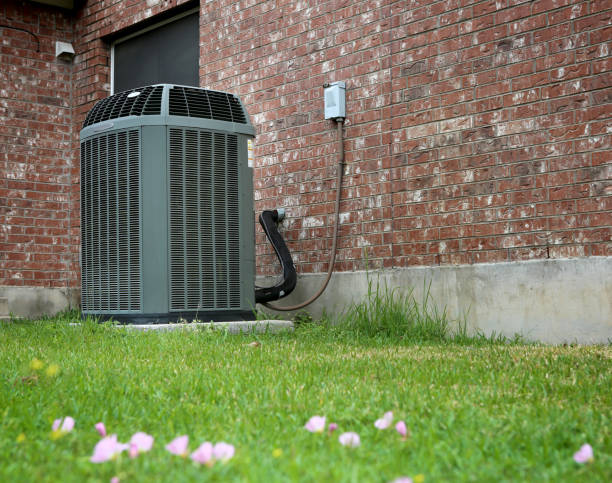Heat Pump Repair in Apollo Beach, FL

Facing heat pump issues in Apollo Beach, FL? This guide highlights critical warning signs like poor performance, strange noises, or high energy bills. Discover our expert heat pump repair process, from meticulous diagnostics to comprehensive solutions for refrigerant leaks, electrical faults, and more. We also offer honest advice on whether repair or replacement is the most cost-effective decision, ensuring your home regains optimal comfort and efficiency quickly and effectively.

Expert Heat Pump Repair in Apollo Beach, FL
When your heat pump fails, your home’s comfort is immediately compromised. In the unique climate of Apollo Beach, where we rely on these systems for both potent cooling during sweltering summers and efficient heating on cool winter nights, a breakdown is more than an inconvenience—it’s an urgent problem. A malfunctioning unit can struggle to maintain temperature, drive up energy costs, and disrupt your daily life. Restoring comfort and efficiency requires swift, professional attention from technicians who understand the specific demands that Florida’s weather places on HVAC equipment.
Recognizing the Signs of a Failing Heat Pump
Before a complete system failure, your heat pump will often display warning signs. Addressing these symptoms early can prevent more extensive and costly damage. Being aware of these indicators allows you to seek professional help before a minor issue becomes a major system breakdown.
Inadequate Heating or CoolingThe most obvious sign of a problem is when your system can no longer reach or maintain the temperature set on your thermostat. If the air coming from your vents is lukewarm or the system runs constantly without changing the indoor climate, it points to a significant issue, potentially with the refrigerant levels, compressor, or reversing valve.
Strange or Loud NoisesYour heat pump should operate with a relatively quiet hum. Sudden or unusual noises are a clear call for a professional inspection.
- Grinding or Scraping: This could indicate a problem with the motor bearings or a foreign object inside the unit.
- Squealing or Hissing: These sounds often suggest a refrigerant leak, which is a serious issue that impacts performance and can damage the compressor.
- Banging or Clanking: A loose or broken part, such as a fan blade or motor mount, could be the culprit.
Constant or Frequent CyclingA heat pump that turns on and off in short, frequent bursts is "short-cycling." This is not only inefficient but also puts immense strain on the system’s components. This issue can be caused by a faulty thermostat, clogged air filters, an oversized unit, or low refrigerant charge.
Unexplained Spikes in Your Energy BillsIf your utility bills have suddenly increased without a corresponding change in your usage habits, your heat pump may be the cause. When a component is failing, the system has to work harder and run longer to heat or cool your home, consuming significantly more electricity in the process.
Leaks or a Frozen Outdoor UnitAny visible fluid leaking from your indoor or outdoor unit warrants immediate attention. While some condensation is normal, a refrigerant leak is a serious problem. Likewise, if your outdoor unit’s coils are covered in a thick layer of ice, especially when it is not cold outside, it signifies a problem with airflow or refrigerant levels that is hindering the defrost cycle.
Our Meticulous Diagnostic and Repair Process
To ensure a lasting and effective solution, we follow a systematic process that moves from accurate diagnosis to precision repair. We believe in transparency and thoroughness, ensuring you understand the problem and the proposed solution before any work begins.
First, our technicians conduct a comprehensive visual and operational inspection of your entire heat pump system. This includes examining the indoor air handler and the outdoor condenser unit, checking for obvious signs of wear, damage, or blockages. We inspect air filters, coils, drain lines, and electrical connections to get a complete picture of the system's health.
Next, we utilize advanced diagnostic tools to pinpoint the exact cause of the malfunction. This involves checking refrigerant pressure levels with gauges to identify leaks or improper charging, testing electrical components like capacitors and relays for proper function, and evaluating the performance of the compressor and fan motors. This data-driven approach allows us to move beyond guesswork and identify the root of the problem accurately. Our technicians will then explain their findings in clear, easy-to-understand terms, outlining the necessary repairs.
Comprehensive Heat Pump Repair Solutions
Our team is equipped to handle a wide range of heat pump malfunctions, using high-quality parts and industry-leading techniques to restore your system to peak performance.
- Refrigerant Leak Detection and Recharge: We use specialized electronic leak detectors to locate the source of a refrigerant leak, repair the compromised line or component, and recharge the system to the manufacturer’s precise specifications.
- Electrical Component Repair: Faulty capacitors, contactors, or control boards are common points of failure. We can test and replace these critical components to resolve issues like a system that won’t start or a fan that won’t run.
- Fan Motor and Blower Assembly Repair: Whether it's the outdoor condenser fan or the indoor blower motor, we can repair or replace malfunctioning motors that cause poor airflow, overheating, and system shutdowns.
- Reversing Valve Replacement: The reversing valve is unique to heat pumps, allowing them to switch between heating and cooling modes. If your system is stuck in one mode, we can diagnose and replace a faulty reversing valve.
- Thermostat and Control System Service: An inaccurate or malfunctioning thermostat can cause a host of problems. We can calibrate, repair, or upgrade your thermostat to ensure it communicates properly with your heat pump.
The Critical Decision: Repairing vs. Replacing Your Heat Pump
When faced with a significant repair, it is natural to question whether it is more cost-effective to repair the existing unit or invest in a new system. Our technicians provide honest guidance to help you make the best decision for your home and budget.
When Repair Is Often the Best Option:
- The system is less than 10 years old and has been well-maintained.
- The required repair is relatively minor and the cost is a fraction of a new unit.
- The unit does not have a history of frequent breakdowns.
- Your system uses a modern, environmentally friendly refrigerant.
When Replacement Becomes a Wiser Investment:
- The unit is over 12-15 years old and nearing the end of its expected lifespan.
- The cost of the repair is 40-50% or more of the cost of a new system.
- The system has required multiple repairs in the last few years.
- Your unit uses R-22 refrigerant, which is being phased out and is expensive to source.
- You are looking to significantly improve your home’s energy efficiency and lower your long-term utility costs.










